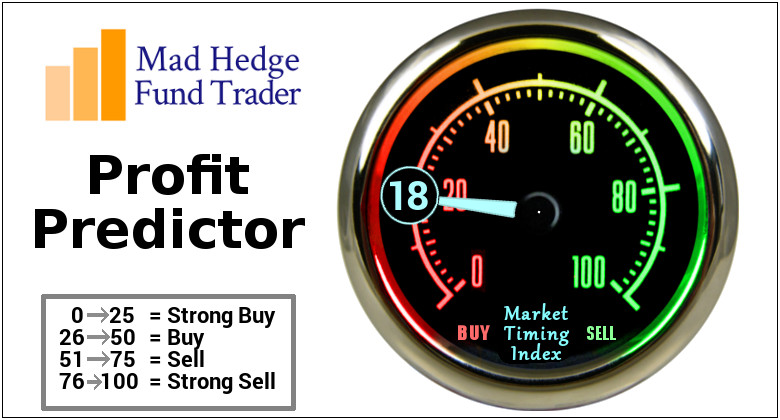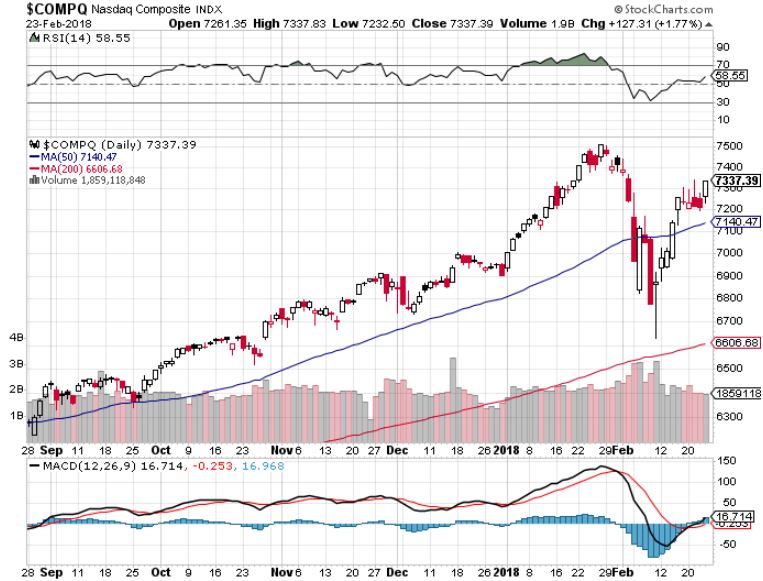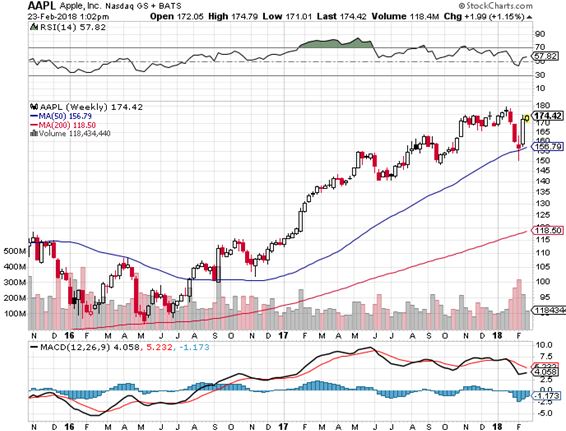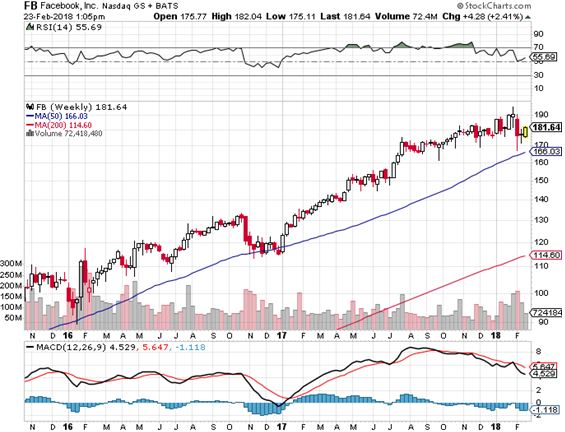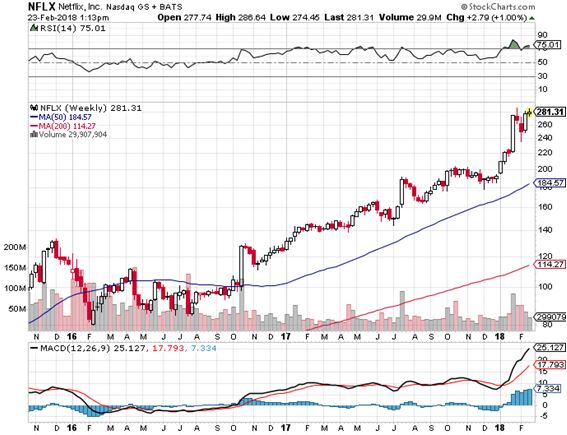Mad Hedge Technology Alerts!
Mad Hedge Technology Letter
February 26, 2018
Fiat Lux
Featured Trade:
(QQQ), (FB), (AAPL), (AMZN), (NFLX),
(MU), (LRCX), (GOOGL), (NVDA)
The NASDAQ (QQQ) technology Index (QQQ) is struggling to reach its January all-time high at $7,261.
We are about to approach the 18-year anniversary of the last technology bubble top during April 2000.
Has it been that long? I remember the IPO party Vodka luges like it was yesterday.
So many investors here in the San Francisco Bay Area are asking if it is time to sell all the stock they own and move to a country without an extradition treaty, like Brazil.
Everyone here feels like they are getting away with murder, making big money for doing nothing.
They remember all too well what happened to those who forgot to sit down last time the music stopped playing.
Fortunes were lost, homes foreclosed, trophy wives went missing, and kids were sent to public school in marginal neighborhoods.
That day is certainly coming.
But not for at least another year, which means that NASDAQ will hit 7,000, 8,0000, and even 10,000 before the fat lady sings.
The moves certainly have been staggering, especially since the beginning of 2016, when the tech melt up started.
Apple, the largest capitalized company in the world, is up exactly 100% during this time, creating a staggering $445 billion in paper wealth. That's almost a whole country!
Facebook (FB) has gained a breathtaking 118%%, while Amazon (AMZN) has posted an eye popping 220%. Netflix (NFLX) has tacked on an incredible 251%.
It has all created immense wealth for individual investors, especially here in the San Francisco Bay Area, where everybody keeps their entire retirement savings in technology stocks.
No wonder I can't hire a new gardener, nanny, or housekeeper!
You see, it all about the numbers.
For a start, let's compare apples with apples. NASDAQ would have to hit an inflation adjusted 7,196.56 to really get to a new high, and we're not quite there yet.
When the bubble popped last time, NASDAQ traded at a price earnings multiple of 100 times, versus 25 today.
Then it was all about "eyeballs". Now it is about real earnings and cash dividends. Tech was 10% of total market capitalization at the last top, compared to 25% now.
And while some analysts are openly arguing that technology stocks are peaking here, I believe they are only just getting started.
For years, we technology mavens thought "Moore's Law" would drive us out of business by 2020.
This was the mathematical prediction made by Intel founder Gordon Moore that improvements in semiconductor price and performance would reach the limits defined by physics about now.
Instead, the opposite is happening. For the first time in years, manufacturers are raising prices, as chips become more customized and add more value.
The 50-year cycle of ever faster and cheaper chips has at last been broken.
And thanks to the exponential growth of server farms run by Google (GOOG), Amazon (AMZN), Facebook (FB), demand is far outstripping supply.
The cloud is growing by leaps and bounds due to the explosive growth of streaming and online commerce. Virtually all of the Fortune 500 now have cloud strategies.
Every time a traditional bricks and mortar retailer goes under, it creates more demand for chips.
Netflix (NFLX) alone is probably responsible for a doubling of global semiconductor demand in the past decade because of the downloading millions of two hour long movies a week by its entertainment starved customers.
Cocooning and binge watching is this company's dream come true.
If you haven't noticed, those fancy new applications you have been buying have been getting faster, smarter, with better resolution and functionality, eating up voracious amounts of memory.
Every time there is a major hack somewhere in the world, chip demand inspired by the urgent enhancing of security measures explodes.
Automobiles, too, are major new drivers of chip demand. My Tesla S-1 (TSLA) boasts a massive 24 gigabytes of computing capacity, more than most PC's. General Motors (GM) will have to install the same just to play catch up.
And the rapid diffusion of artificial intelligence algorithms is coming into play.
This is why my top pick for 2016 NVIDIA (NVDA) doubled in a mere two months, and then doubled again. It was not alone. (NVDA) could double a third time from the recent $180 low.
Lam Research (LRCX), which is growing revenues 60% YOY, and Micron Technology (MU) could do the same.
There are two other new secular trends that analysts hadn't counted on.
As old hard drives with their quaintly spinning disks die off, they are being replace with solid state, solid silicon devices, with no moving parts.
But even the relentless 24/7 cycle of online commerce wears these out, creating yet another upgrade cycle.
I have been telling readers for a decade now that if they want to be lazy and invest in only one sector, it had to be technology.
It's nice to see all of this coming to pass.
Here's Your Future
Mad Hedge Technology Letter
February 23, 2018
Fiat Lux
Featured Trade:
(IS AIRBNB THE NEXT FANG?)
(PYPL), (GOOG), (SNAP)

